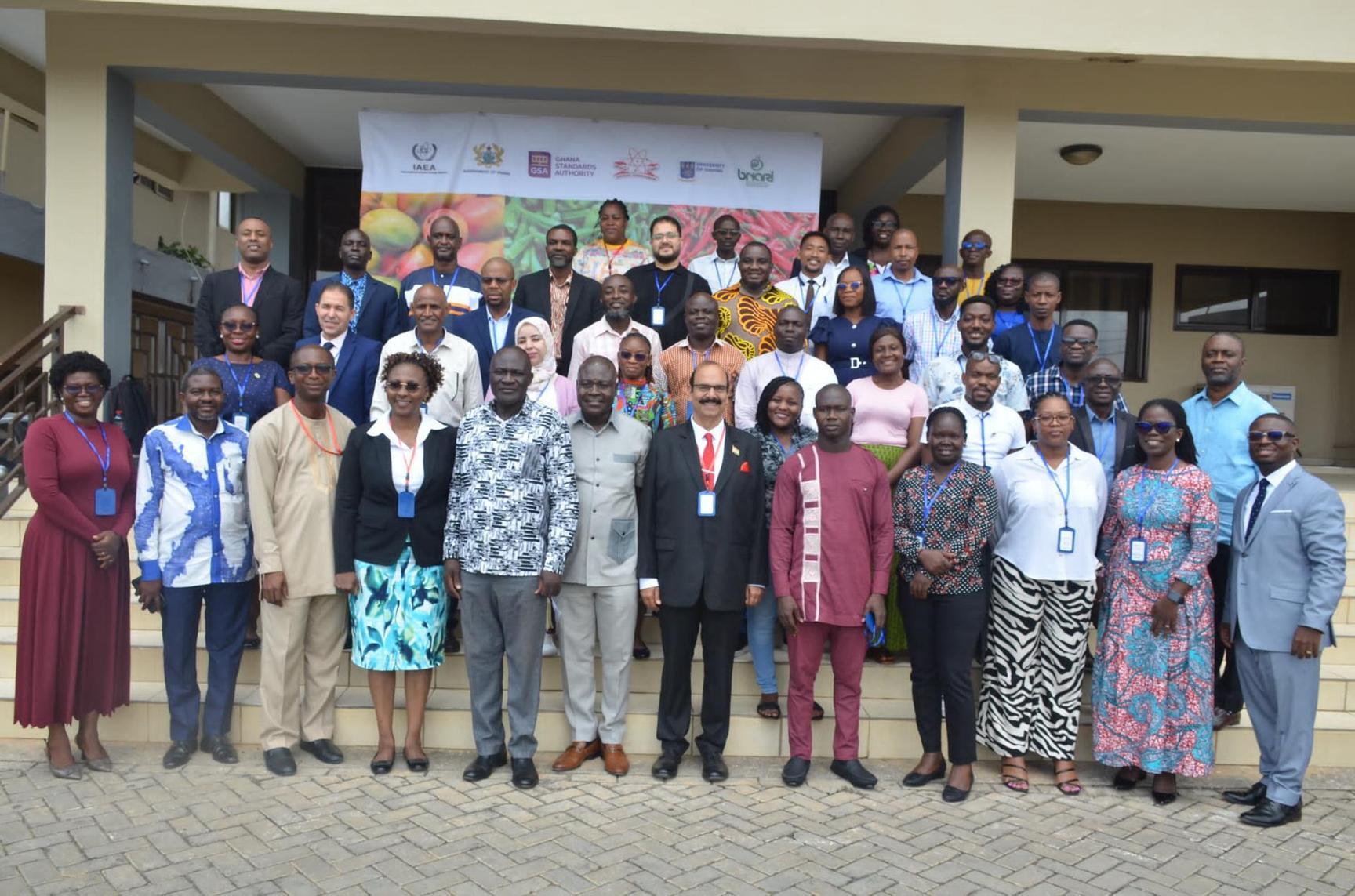Africa-Press – Ghana. The Ghana Atomic Energy Commission (GAEC) and the Ghana Standards Authority (GSA) has launched a regional training programme in Accra to enhance food safety standards across Africa.
The two-week training, which began last Monday, focused on Good Laboratory Practices (GLP) for conducting supervised field trials of crops.
In a news statement signed by Dr. Mark Kwasi Sarfo, Manager, Communication and Public Relations Centre, GAEC, and copied to the Ghana News Agency in Accra said, the initiative seeks to build technical capacity among African scientists to generate credible data on pesticide residues, vital for establishing Codex Maximum Residue Limits (MRLs) that protects consumer health and facilitate international trade.
It said the training funded by the International Atomic Energy Agency (IAEA) under its Technical Cooperation Programme, was part of the regional project RAF5091, titled “Enhancing Human and Analytical Capacities for Food Safety Standards.”
“Scientists from 18 African countries, including Ghana, Egypt, Kenya, South Africa, and Morocco, are participating in the workshop,” it said.
The statement said, at the opening ceremony, Mr. James Sasanya, Technical Officer for the IAEA project, commended the Government of Ghana, GAEC, and GSA for hosting the training.
He emphasised the importance of reliable scientific data in shaping global food safety standards and warned that countries without such data risk exclusion from key international decisions.
“Without scientific data, standards can become technical trade barriers, countries that do not participate in data generation risk being sidelined in decisions that affect their food systems and economies,” he said.
Mr. Sasanya also called for increased regional collaboration, institutional support, and the nomination of qualified participants to ensure the project’s long-term impact.
He said the IAEA’s four-year food safety initiative, launched in 2024, also supports training in veterinary drug residues, mycotoxins, and toxic metals, alongside assistance in acquiring specialised equipment and supplies.
Delivering a message on behalf of GAEC’s Director-General, Professor Samuel Boakye Dampare, the Director of Schools at GAEC, Professor Joseph Richmond Fianko, highlighted the significance of hosting the event in Ghana.
He stressed the need for harmonised food safety standards across Africa to ensure global competitiveness.
“We must work together to ensure that the continent develops systems that meet international requirements,” Prof. Dampare said.
The statement said, the Director-General of the GSA, Professor Alex Dodoo, urged African scientists to become more vocal in influencing national and regional policy and encouraged them to step beyond research to contribute to public discourse on science-based standards.
“In today’s transactional world, where multilateralism is giving way to national interest, scientific evidence and strategic communication are more important than ever, we must emulate countries like India, which over the past 30 years have prioritised self-reliance and scientific development,” he said.
It said the training is expected to strengthen regional cooperation and empower African nations to play a more assertive role in shaping global food safety protocols, reinforcing a shared vision for a science-led regulatory environment across the continent.
For More News And Analysis About Ghana Follow Africa-Press







